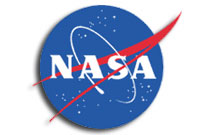NASA Wants Everyone To Know About ISS Missions That They Are Going To Say Less About
Strangely @KathyLueders talks again and again how these #ISS missions are "our nation's missions" and emphasizes the need for #NASA to inform the public – and then a moment later she says that @NASA is cutting back on live mission updates due to the cost.
Huh? pic.twitter.com/ibg9y8zM7g
— NASA Watch (@NASAWatch) February 4, 2022









NASA realizes that ISS is seen as a success (after 2 decades of telling the public this) and since they are trying in earnest to shut ISS down to take its budget, they’d like you to hear less about it.
NASA would like everyone to focus on the hopefully new Artemis success. Thats a bit of a concern since aside from one short and unexciting unmanned mission sometime in the next year, nothing else is going to happen in Artemis for several years.
The most that might happen is that Space X proves the Star Ship flies, and then Musk’s success becomes NASA’s success.
I guess NASA has given up on curing cancer or winning the Nobel? Good thing they have done lots of school downlinks. I wonder if that was meaningful for any students?
NASA has forgotten how boring and meaningless Apollo was to most of the public. Prior to the manned Apollo missions no one was paying any attention except when NASA killed some astronauts. After Apollo 11 the little surge that came with the first man evaporated and no network even covered the last several missions.
Artemis will start flying people in 3 to 5 years? At a regular cadence of once a year? Id suggest NASA keep talking up its humans in space on ISS until there is something more exciting.
If NASA needs money to buy the SLS upgrade or Gateway, they better work something out with Congress. Or alternatively the Musk Program makes a lot of sense and it is exciting enough that people do pay attention. Then NASA can evolve to whatever its rightful place is.
The lack of network coverage of later Apollo missions is news to me. I watched them live on TV (and the networks were the only game in town).
I tried to watch them live and mostly they were not covered. Apollo 13, the tour just before the explosion, not covered. The Apollo 14 landing, middle of the night on the east coast -not covered. The Apollo 14 EVAs were covered but with one tv camera attached to the LM there was nothing to see. Apollo 15 they tried to simulate the rover driving by rolling a carpet in front of a camera. I think that was the last straw for the big 3 networks. The remainder of the missions they would cut in for 5 min each hour.
I too watched network coverage of later missions when they were happening. NBC with Jim Hartz mostly.
In the “Destination Station” webinar, activities on ISS were discussed. In the chat Q & A, a question was asked about vaccine research. The reply was that any research going on for vaccines or other pharmaceuticals was proprietary and could not be discussed. Upon persisting with the question, a reference was provided to a website for a company that was doing research there.
This is apparently typical for any work done by commercial entities at National Labs – and the ISS is designated as such. The commercial entities pay for use of the National Lab. These types of arrangements will make it difficult to publicize some of the beneficial work done on ISS. Of course, when fully commercial space stations come on-line, this point will become mute. In the long term, this fits with NASA’s charter. In the short term, it is a bit frustrating, especially now.